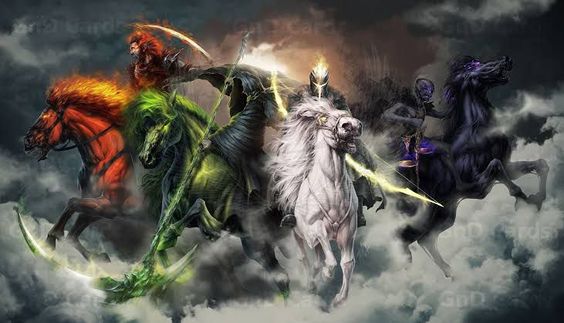- MBTI
- INFJ
- Enneagram
- 5w4
What is "peace"? I do not mean peace in one's individual life, and how one achieves it, I mean the utopian concept of a people, a nation, living in peace.
I'm going to throw some ideas together here, nothing structured. (I have no time for that.)
–– Agricultural societies have more wars and conflicts than hunter-gather societies. (It seems obvious to me that this is about territory and resources, but there may be more to it.)
–– The Age of Reason (and beyond) saw more war casualties than previous societies, showing that reason does not end violence. The more access to intellectual ideas we have, the more deadly our weapons become.
–– Societies with no primal ritual outlets tend to be more violent toward each other. Could this mean that the more peaceful our society gets, the more random violence (such as mass shootings, school shootings, etc) we will experience?
Could violent video games serve as ritual outlets, thus decreasing societal violence instead of inspiring it? I'll argue the same for some sports, metal/punk music, and horror movies and books.
–– War is a blood ceremony, bonding ceremony, a rite of passage, and a ceremony that teaches us we (the hypothetical army) are one, instead of individuals. In times of crisis and near-death, we often feel most alive, closest to God, or more in touch with the profound. How can we replace these important aspects of the human experience in modern society without killing each other?
–– Western societies living peacefully are a facade. The peace we experience in daily life comes at the sacrifice of others, such as sweatshop workers making our clothing and goods. Therefore, it is not peace.
–– Is peace possible?
Please don't fall back on tired, preformed political theory. If those worked, we would already have answers.
I'm going to throw some ideas together here, nothing structured. (I have no time for that.)
–– Agricultural societies have more wars and conflicts than hunter-gather societies. (It seems obvious to me that this is about territory and resources, but there may be more to it.)
–– The Age of Reason (and beyond) saw more war casualties than previous societies, showing that reason does not end violence. The more access to intellectual ideas we have, the more deadly our weapons become.
–– Societies with no primal ritual outlets tend to be more violent toward each other. Could this mean that the more peaceful our society gets, the more random violence (such as mass shootings, school shootings, etc) we will experience?
Could violent video games serve as ritual outlets, thus decreasing societal violence instead of inspiring it? I'll argue the same for some sports, metal/punk music, and horror movies and books.
–– War is a blood ceremony, bonding ceremony, a rite of passage, and a ceremony that teaches us we (the hypothetical army) are one, instead of individuals. In times of crisis and near-death, we often feel most alive, closest to God, or more in touch with the profound. How can we replace these important aspects of the human experience in modern society without killing each other?
–– Western societies living peacefully are a facade. The peace we experience in daily life comes at the sacrifice of others, such as sweatshop workers making our clothing and goods. Therefore, it is not peace.
–– Is peace possible?
Please don't fall back on tired, preformed political theory. If those worked, we would already have answers.


